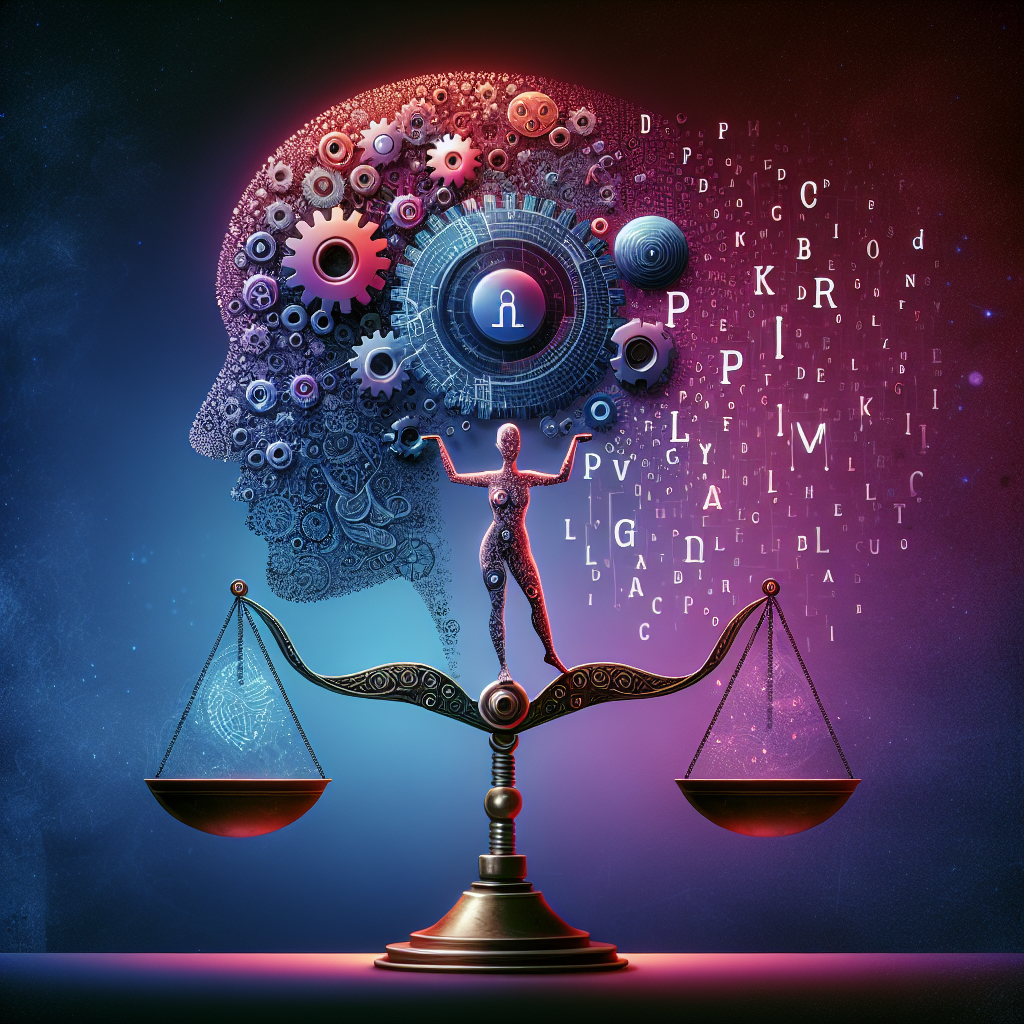Introduction
In the age of artificial intelligence (AI), privacy has become a hot topic of discussion. On one hand, AI has the potential to revolutionize industries and improve our daily lives in countless ways. On the other hand, the use of AI raises concerns about the privacy and security of our personal data. This delicate balance between the benefits of AI and the protection of privacy is a complex issue that requires careful consideration.
AI and Privacy: A Delicate Balance
AI technology has the ability to collect, analyze, and utilize vast amounts of data to make predictions and decisions. This data can include personal information such as our location, browsing history, and even our facial features. While this data can be used to create personalized experiences and improve efficiency, it also raises important privacy concerns.
One of the main concerns surrounding AI and privacy is the potential for data breaches and unauthorized access to personal information. As AI systems become more sophisticated and interconnected, the risk of data breaches increases. This can lead to sensitive information being exposed to malicious actors, putting individuals at risk of identity theft and other forms of cybercrime.
Another concern is the use of AI for surveillance purposes. Facial recognition technology, for example, has raised significant privacy concerns as it has the potential to track individuals’ movements and activities without their consent. This can infringe on individuals’ right to privacy and raise questions about the ethical implications of such technologies.
Furthermore, the use of AI in decision-making processes can also raise privacy concerns. AI algorithms are often trained on large datasets that may contain biases or inaccuracies. This can lead to discriminatory outcomes, such as in the case of hiring algorithms that inadvertently favor certain demographics over others. This not only raises concerns about fairness and equality, but also about the privacy of individuals who may be adversely affected by these decisions.
Balancing the benefits of AI with the protection of privacy requires a multi-faceted approach. Companies and organizations that use AI must prioritize data security and transparency in their practices. This includes implementing robust security measures to protect data, obtaining informed consent from individuals before collecting their data, and providing clear explanations of how data is used and shared.
Regulatory frameworks also play a crucial role in ensuring the responsible use of AI. Governments around the world are beginning to introduce legislation that governs the use of AI and protects individuals’ privacy rights. For example, the General Data Protection Regulation (GDPR) in Europe sets strict guidelines for the collection and processing of personal data, including the right to be forgotten and the right to data portability.
In addition to strong regulations, ethical guidelines and principles are also important in guiding the development and deployment of AI technologies. Ethical considerations such as fairness, transparency, and accountability should be at the forefront of AI design and implementation to ensure that these technologies are used responsibly and in the best interests of society.
FAQs
Q: How can individuals protect their privacy in the age of AI?
A: There are several steps individuals can take to protect their privacy in the age of AI. This includes being mindful of the information they share online, using strong and unique passwords, and regularly updating privacy settings on social media platforms. It is also important to be aware of the privacy policies of websites and apps that collect personal data, and to exercise caution when sharing sensitive information.
Q: What are some best practices for companies and organizations using AI to protect privacy?
A: Companies and organizations using AI should prioritize data security by implementing robust security measures such as encryption and access controls. They should also obtain informed consent from individuals before collecting their data, and provide clear explanations of how data is used and shared. Transparency is key in building trust with customers and stakeholders, so it is important to be open about data practices and to address any privacy concerns promptly.
Q: How can regulators ensure the responsible use of AI?
A: Regulators can ensure the responsible use of AI by introducing legislation that governs the collection and processing of personal data, as well as the use of AI technologies. This includes setting strict guidelines for data protection, such as the right to be forgotten and the right to data portability. Regulators can also monitor compliance with existing regulations and enforce penalties for non-compliance to deter unethical behavior.
Conclusion
The balance between the benefits of AI and the protection of privacy is a complex and evolving issue that requires careful consideration. While AI has the potential to revolutionize industries and improve our daily lives in countless ways, it also raises important privacy concerns that must be addressed. By prioritizing data security, transparency, and ethical principles, we can ensure that AI technologies are used responsibly and in the best interests of society. It is essential for companies, organizations, regulators, and individuals to work together to find the right balance between innovation and privacy protection in the age of AI.

